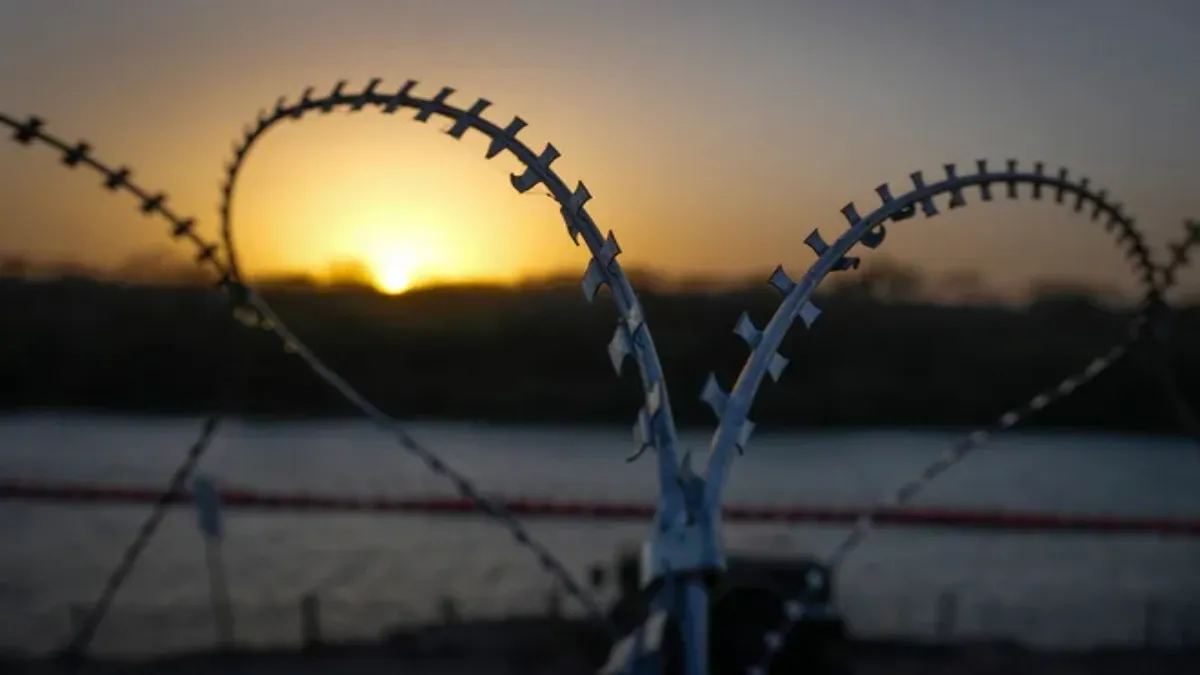In the ongoing clash over border security and immigration policies, Texas Governor Greg Abbott remains defiant despite a recent 5-4 Supreme Court ruling allowing federal border officials to remove razor wire installed by the state along the Rio Grande. The ruling, seen as a victory for the Biden administration, did not conclude the larger legal battle between Texas and the federal government. Abbott, along with state Attorney General Ken Paxton, asserts that Texas will persist in defending its constitutional authority to secure the border, highlighting the broader implications of the conflict over immigration policies.
Abbott’s Defiance:
Governor Abbott expressed his stance on social media, stating, “This is not over,” and emphasizing that Texas considers its razor wire an effective deterrent against illegal border crossings encouraged by the Biden administration’s policies. Abbott’s commitment to defending Texas’ constitutional authority underscores the state’s determination to resist federal actions that, in its view, threaten border security and property rights.
Legal Battle Continues:
The Supreme Court’s ruling temporarily set aside the 5th U.S. Circuit Court of Appeals’ decision, allowing federal agents to cut the razor wire installed by Texas. However, the ruling did not bring an end to the lawsuit filed by Attorney General Paxton in October. The lawsuit aims to prevent federal entities, including the Department of Homeland Security, from seizing or destroying the wire barriers. The matter has been referred back to the 5th Circuit, where arguments are scheduled for February 7.
Political Feud:
The legal battle over razor wire installations is part of a larger and increasingly bitter feud between Texas Republican leaders and the Democratic White House over border and immigration policies. The surge of migrants at the border has heightened tensions, making immigration a focal point of contention between the state and federal governments.
Operation Lone Star:
Texas’ $11 billion border initiative, known as Operation Lone Star, continues to maintain its current posture, utilizing razor wire and other physical barriers to deter unlawful immigration. Lt. Chris Olivarez, spokesman for border issues with the Texas Department of Public Safety, highlighted concerns about the federal government hindering Texas’ ability to protect its border while allowing what the state perceives as exploitative and dangerous methods of illegal immigration.
Recent photographs posted by the Texas Military Department on social media show National Guard soldiers and DPS troopers adding more razor wire along the Rio Grande in Eagle Pass, underscoring the state’s commitment to bolstering physical barriers as part of its border security efforts. The conflict between state and federal authorities extends beyond razor wire installations, with disputes over federal access to areas like Eagle Pass’ Shelby Park, further complicating the situation.
The post-Supreme Court ruling scenario highlights the deep-rooted disagreements between Texas and the federal government regarding border security and immigration policies. Governor Abbott’s commitment to defending the state’s sovereignty and the continuation of Operation Lone Star indicate that the legal and political battles over the border are far from over. As the legal proceedings unfold, the complex relationship between state and federal powers in addressing immigration challenges remains a central theme in the ongoing debate over border security.


